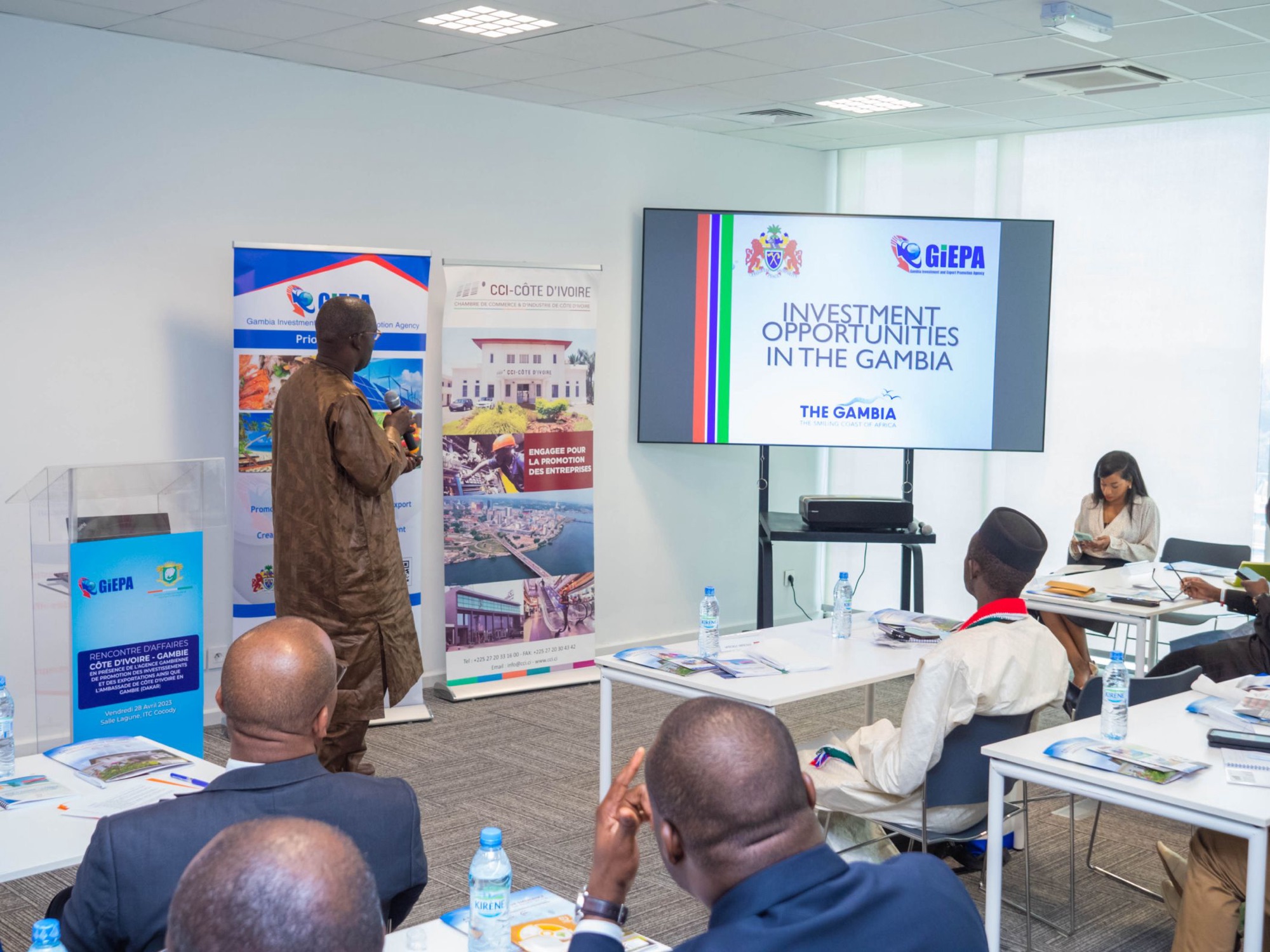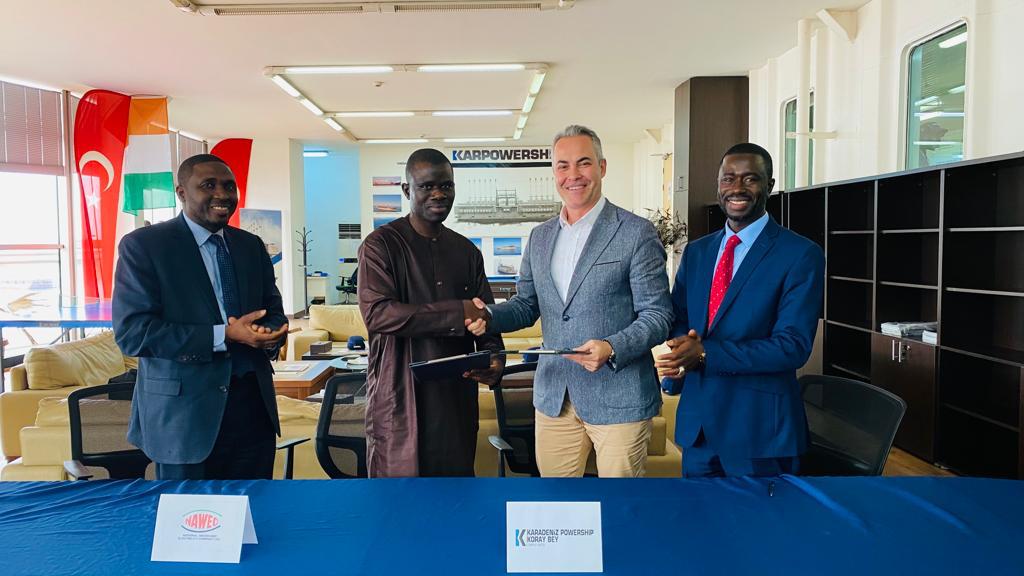By Victor Ofuonye
In an ambitious move to spur economic growth and development, the government of The Gambia has announced a series of tax rebates and liberalization measures designed to bolster the industrial sector and attract foreign investment. This initiative is crucial as the country seeks to diversify its economy and reduce reliance on traditional sectors like agriculture and tourism.

The Gambia, a small West African nation bordered by Senegal, has long faced economic challenges, including high unemployment rates and a lack of industrial infrastructure. Historically reliant on agriculture, particularly groundnut production, the economy has struggled to modernize and expand into new sectors. However, with changing global economic dynamics and a growing recognition of the need for industrialization, the Gambian government is now prioritizing policies that promote industrial growth.
The recent reforms introduced by the Gambian government encompass a range of tax incentives, including significant reductions in corporate tax rates for manufacturing firms, exemptions on import duties for raw materials, and enhanced value-added tax (VAT) refunds. These measures aim to reduce the overall fiscal burden on businesses, thereby enabling them to reinvest savings into expansion and innovation.
Central to this initiative is the introduction of tax rebates aimed at both local and foreign investors. The government has proposed a reduction in corporate tax rates for businesses that meet specific investment criteria, such as job creation and technological innovation. These tax incentives are expected to lower the financial burden on companies, encouraging them to invest in new technologies, expand their operations, and hire more workers.
Alongside tax rebates, the Gambian government is also implementing liberalization measures to create a more business-friendly environment. This includes reducing bureaucratic hurdles, streamlining business registration processes, and enhancing access to financing for small and medium-sized enterprises (SMEs).
The government is also working to improve infrastructure, including transportation and energy, to support industrial activities. One notable feature of the liberalization effort is the establishment of Special Economic Zones (SEZs). These zones are designed to offer additional tax breaks, regulatory exemptions, and other incentives to attract businesses. The first SEZ is set to open at the GIETAF (around the Banjul International Airport) in Yundum, providing a strategic location for manufacturing and export-oriented businesses.

The combination of tax rebates and liberalization measures is expected to have a profound impact on The Gambia’s economy. By encouraging domestic and foreign investment, the government aims to create jobs, boost productivity, and increase overall economic growth. The initiative is projected to lead to the establishment of new industries, including textiles, agro-processing, and light manufacturing.
Economists have noted that these measures align with the government’s broader vision of achieving Sustainable Development Goals (SDGs) and fostering inclusive growth. With a focus on industrialization, The Gambia hopes to increase its GDP and improve living standards for its citizens.
While the government’s initiative has been met with optimism, challenges remain. The successful implementation of tax rebates and liberalization measures will require effective governance, transparency, and a commitment to maintaining a stable macroeconomic environment. Moreover, there are concerns about potential corruption and the need for strong regulatory frameworks to ensure fair competition.
Additionally, The Gambia must remain vigilant in addressing external factors that could affect its industrial growth, such as global economic trends and trade dynamics, especially with a seemingly anti-trade poised neighbour in Senegal. The government though seems to be aware of these challenges and is working to establish partnerships with regional and international organizations, such as the Africa Development Bank (AFDB) The Afro Exim Bank, ECOWAS, the African Union, IMF, The World Bank and the plethora of others to ensure the sustainability of its industrial policies.
Local entrepreneurs have expressed cautious optimism regarding the government’s initiatives. Many believe that tax rebates and liberalization will provide the necessary support for their businesses to grow and expand. “As a small business owner, I see the potential for growth with these new policies,” said Fatoumata Bah, owner of a textile business in Banjul. “If the government can deliver on its promises, there is a lot of potential for us to thrive.”
However, some business leaders have raised concerns about the need for capacity building and skills development among the workforce. “For The Gambia to become a competitive player in the industrial sector, we need to invest in education and training,” emphasized Lamin Sanyang, a representative of the Gambian Chamber of Commerce. “We must ensure that our workforce is equipped with the skills necessary to meet the demands of a modern economy.”

As The Gambia embarks on its ambitious industrialization agenda, the role of international partners will be crucial. Foreign Direct Investment (FDI) is essential for providing the capital and expertise needed to drive industrial growth. The government is actively engaging with international investors and development partners to showcase the opportunities available in The Gambia. The World Bank and the African Development Bank as well as the Afro Exim Bank have expressed support for The Gambia’s industrialization efforts, providing technical assistance and financial resources to help implement key projects. This collaboration is expected to strengthen the country’s capacity to attract the much-needed FDI that will help transform the economy of the country.
International investors are also taking notice of The Gambia’s evolving industrial landscape. The West African nation has been hosting investment forums to showcase its potential and attract foreign companies looking to expand into new markets. During a recent investment summit that was organized alongside the OIC Summit in The Gambia, several prominent international firms expressed interest in exploring opportunities within the Gambian industrial sector. One of the key highlights of the summit was the emphasis on public-private partnerships (PPPs) as a vehicle to drive industrial growth.
The government is actively seeking collaborations with foreign entities to develop infrastructure and enhance production capabilities. This collaborative approach not only brings in capital but also transfers knowledge and technology, further boosting local industries.
As The Gambia seeks to modernize its industrial base, embracing technology and innovation will be crucial. The government has plans to promote research and development (R&D) initiatives that can lead to the introduction of innovative products and services. By fostering a culture of innovation, The Gambia can enhance its competitiveness in the global market. Moreover, the integration of digital technologies into manufacturing processes is expected to revolutionize the sector. Automation, data analytics, and e-commerce can significantly improve efficiency and productivity. Local businesses that leverage technology stand to gain a competitive edge, not just within The Gambia but across the broader West African region.






